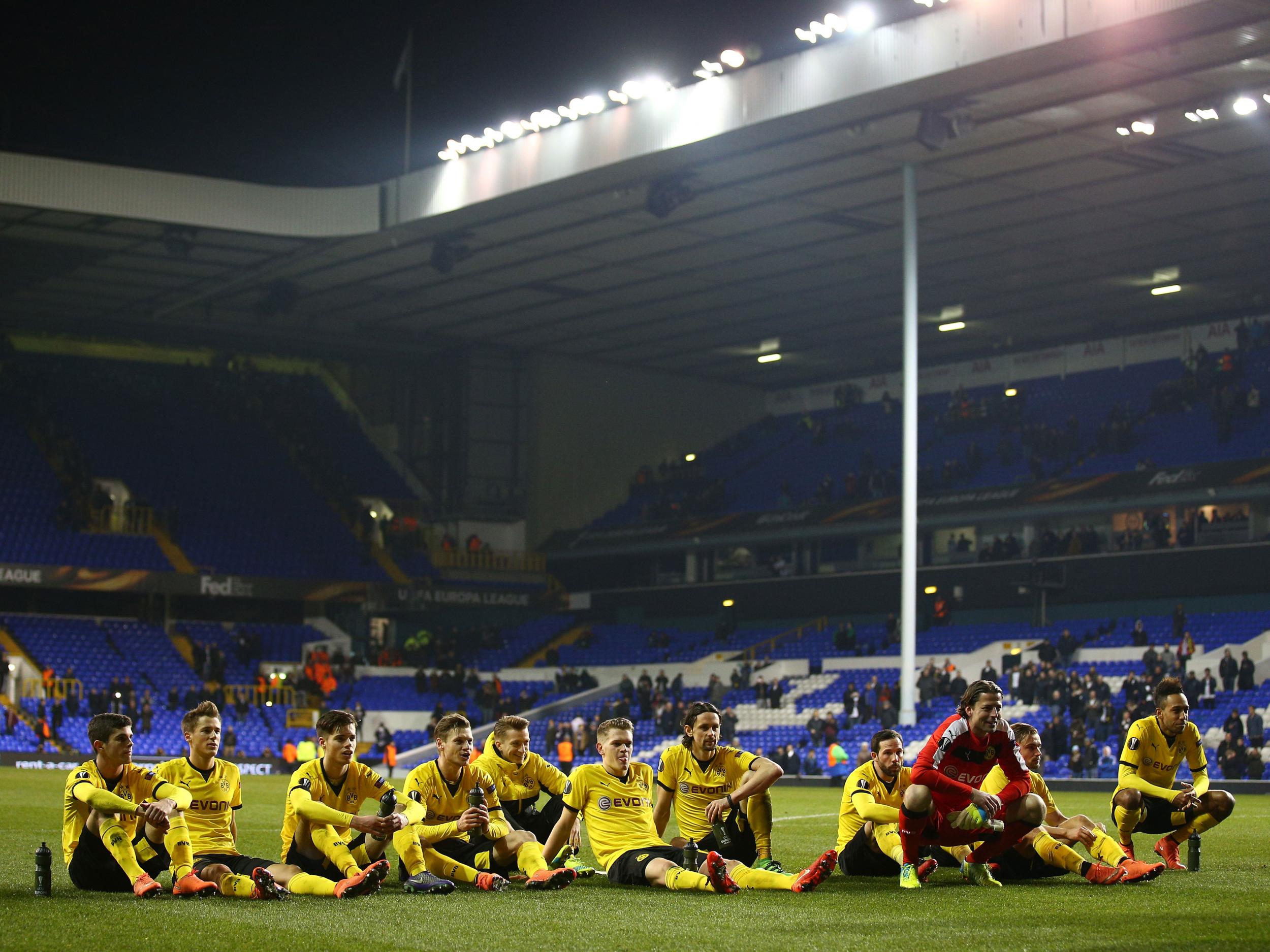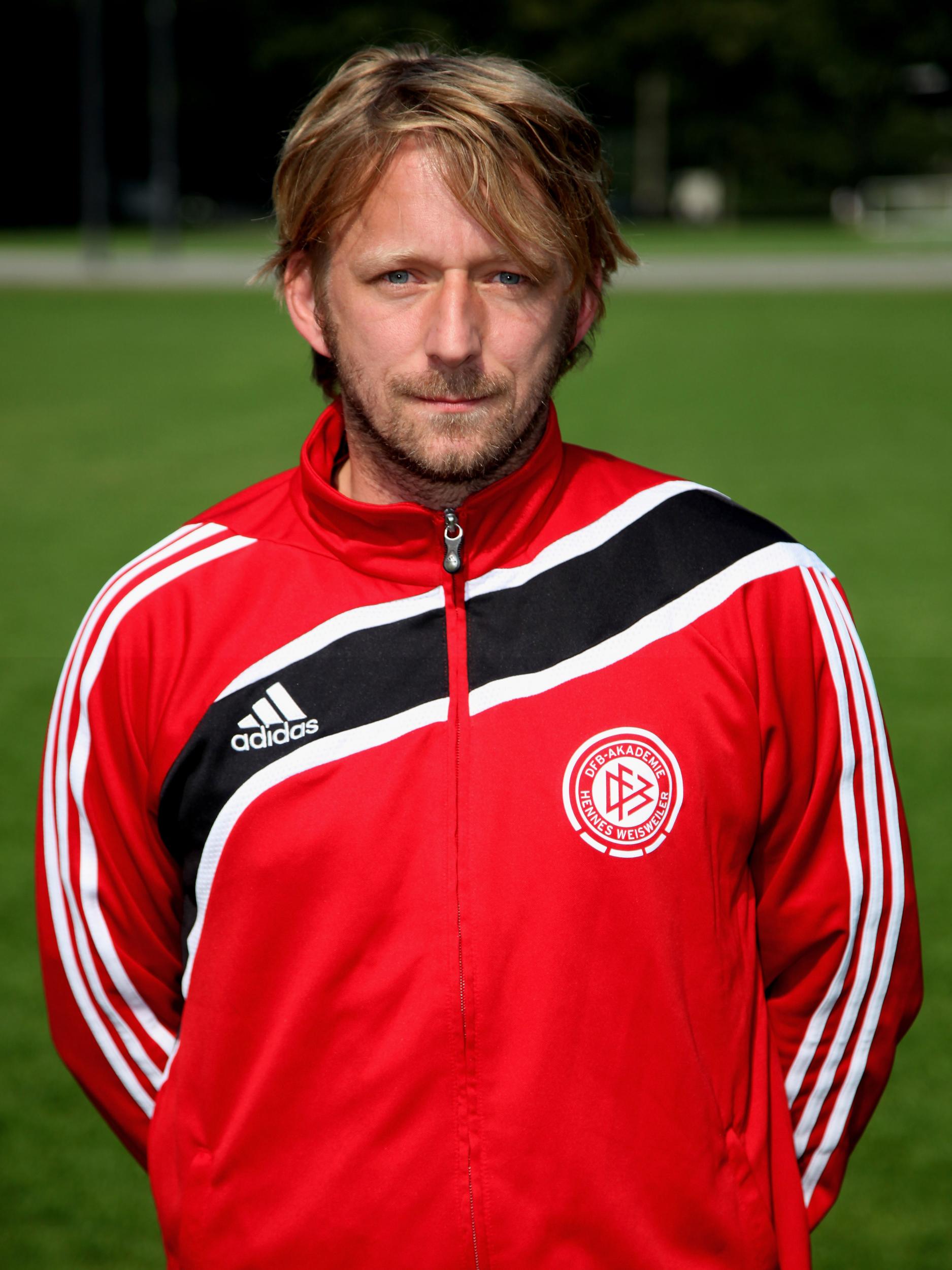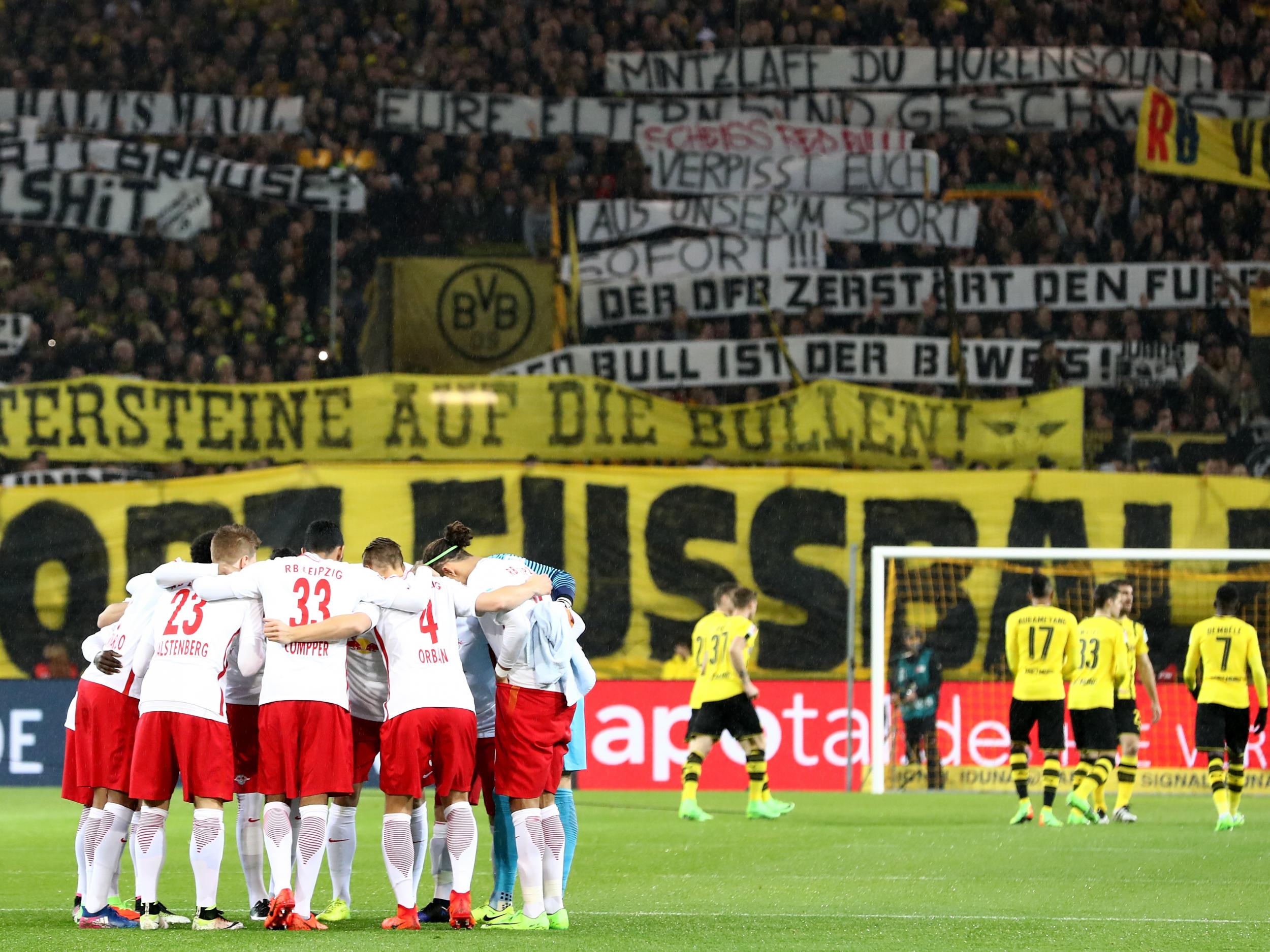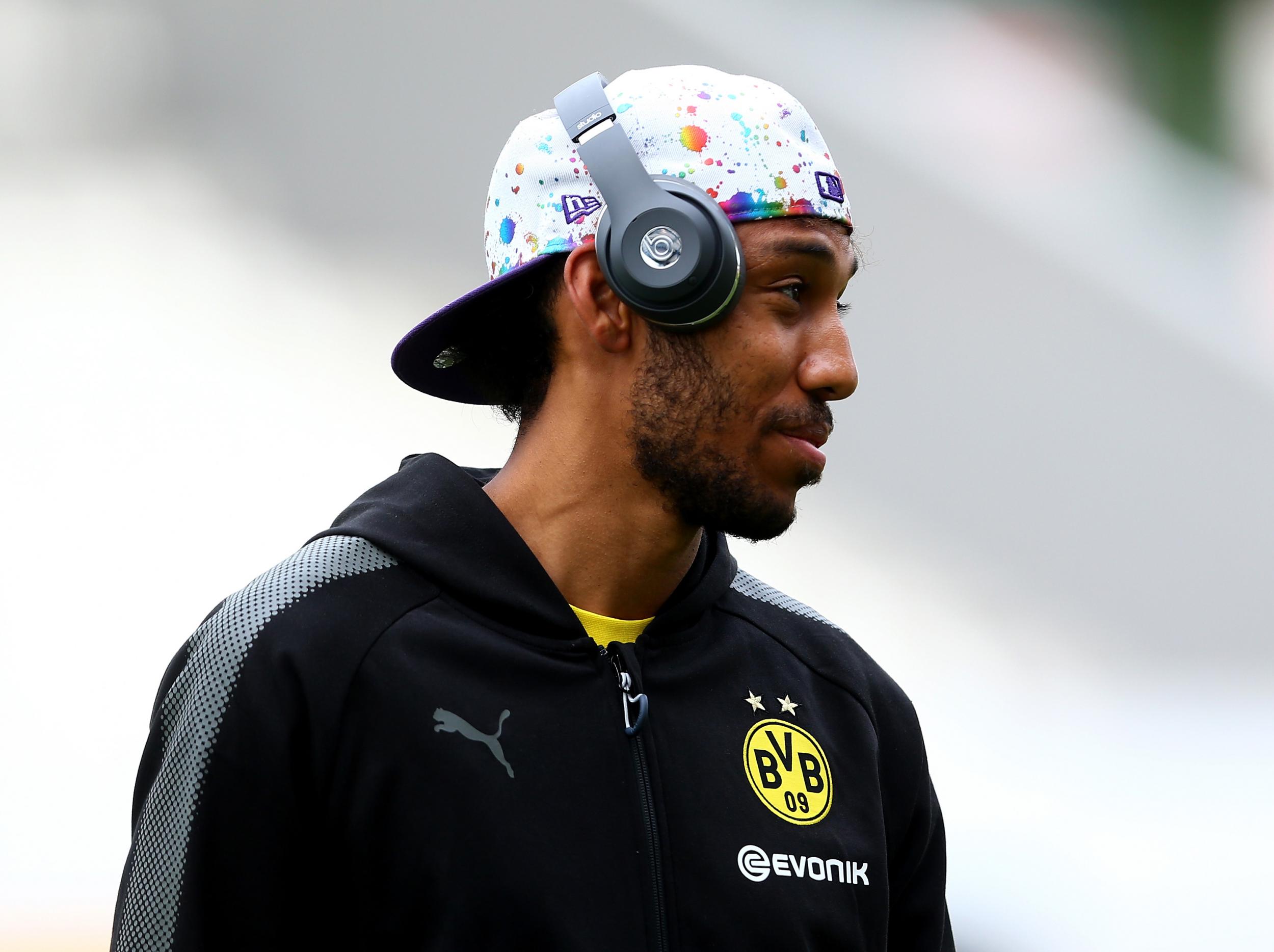Borussia Dortmund should be an example to Tottenham, but it doesn't mean Spurs can't knock them out of the Champions League
Dortmund's infrastructure and sporting direction is something to envy, but Spurs could eliminate them from the Champions League on their own journey to close on Europe's elite

Your support helps us to tell the story
This election is still a dead heat, according to most polls. In a fight with such wafer-thin margins, we need reporters on the ground talking to the people Trump and Harris are courting. Your support allows us to keep sending journalists to the story.
The Independent is trusted by 27 million Americans from across the entire political spectrum every month. Unlike many other quality news outlets, we choose not to lock you out of our reporting and analysis with paywalls. But quality journalism must still be paid for.
Help us keep bring these critical stories to light. Your support makes all the difference.
Sven Mislintat is a name that has come up every time Borussia Dortmund’s seemingly unending stream of developing stars has been discussed, and was front and centre when Bayern Munich tried to poach him in the last year precisely because of the quality of his scouting and general football outlook, but he has been known to Tottenham Hotspur for so much longer.
The White Hart Lane hierarchy actually tried to bring Mislintat in for a dual scouting-and-coaching role half a decade ago, because he was already that well regarded. Spurs assistant manager Steffen Freund spoke of Mislintat that highly, having known him well from doing some of their badges together. Mislintat said no then, just as Dortmund said no to Bayern in the summer, but it’s a little tale that forms part of a huge theme underlying Wednesday night Champions League’s meeting at Wembley.
Dortmund are a potential vision of Tottenham’s future, and their futures could yet be significantly influenced by what happens in this match and then this group. Mauricio Pochettino may have bristled at comparisons between the two clubs in the build-up, very justifiably pointing out they “are in a different environment”, but they genuinely face the same concerns and challenges. Both clubs have successfully defied the economic realities of their competitions to significantly overachieve; both clubs have done so through a very distinctive style and identity that has only deepened the sense of impact; both clubs have had to resist interest from all the bigger sharks as a consequence of all that.

The other major difference, beyond the leagues they’re in, is that Dortmund have already gone through this cycle so many times that they’ve perfected a sustainable plan for it. While this concern only really became concrete for Spurs with the appointment and subsequent impact of Pochettino in 2014, the German club had even by then been living with it for some time. They’ve been living with it for so long, in fact, that three of the major players of Jurgen Klopp’s team have actually come back: Nuri Sahin, Shinji Kagawa and Mario Goetze.
Pochettino’s Spurs haven’t yet suffered the forced sale of players that influential, nor have they suffered the departure of their hugely influential manager - a prospect that doesn’t bear thinking about for supporters, but that must be prepared for by any serious club. Just as importantly regarding this fixture, though, they haven’t made anything like the same progress in Europe.
Dortmund, by contrast, are regulars in the Champions League quarter-finals. That is something that may be aided by the experience derived from being the second biggest club in Germany and the consequent near-guarantee of getting into the top four every season - something denied to Spurs - but it is still so impressive given the constant changes they are forced to endure.

And that is down to the planning they have perfected that has led to figures like Mislintat having such influence, and that Spurs have already started to consider.
The easy thinking might be that the Dortmund transformation began with the appointment of a force of nature of a manager in Klopp in 2008, just as Spurs’ did with Pochettino in 2014, but the German was partly picked because his forward-thinking outlook already matched that of the club and people like director of football Michael Zorc. He just fit.
Mislintat had already been at Dortmund as scout for almost a year at that point, would within another year be promoted to chief scout, and eventually became head of football. He has driven so much of the thinking on the team side, to the point that the club hierarchy naturally sided with him over former manager Thomas Tuchel when they had a disagreement last season. Officials like Zorc could see just how important the super-effective scouting network that Mislintat had set up was, just how valuable his foresight was. Those who know the club well cite how Mislintat was already looking for Ousmane Dembele’s replacements before they’d even signed him, because they knew it would be a matter of time before a big club like Barcelona would come in with the kind of offer impossible to turn down. The French international is also part of a wider stream. When Dortmund let top scorer Lucas Barrios go in 2012, they already had Robert Lewandowski, and then already Pierre-Emerick Aubameyang for over a year when the Pole went to Bayern Munich.

This approach doesn’t just apply to the playing staff, but also to their coaching staff. Huddersfield’s David Wagner, Norwich City’s Daniel Farke and Stuttgart’s Hannes Wolfe are just some of a number of supremely well-educated coaches to come out of Dortmund’s youth teams, fostering this sense of sophisticated sustainability at all levels. It all meant that a forward-looking manager Peter Bosz could so easily come in this summer from Ajax.
The demands on Spurs might be different due to the very nature of the Premier League, but they have already started similar processes, and people in the game who have worked with both cite how they have a similar intelligence in how they operate as Dortmund. As one says, “other clubs might naturally attract bigger commercial deals, but you could argue these two are run a lot better from a business perspective”. They are never going to win auctions against wealthier clubs, so they find these £80m players when they’re still £30m or even £15m players.
One other difference is that it seems like much of this has stemmed from Pochettino, in that he has now instilled a long-term Dortmund-style identity on Spurs that can outlast any manager, and it’s impossible not to notice how some of his other principles have echoed the German club: he’s shown you can pick young players, often bringing many in a year before they’re ready to get them game time; he’s shown you can compete at a high level without high-spending so long as you have a clear understanding of what your team is. What’s more, when you have that kind of understanding, scouting and general planning does become easier. Everything fits a structure, as has been seen at Dortmund. Pochettino has already created a strong and intelligent legacy that Spurs can now follow when he leaves, whenever that may be.

He hasn’t yet shown the way forward in Europe, and that makes Wednesday’s match all the more compelling, especially since it is complicated by Real Madrid’s presence in the group. Or, perhaps, made more simple. The understandable feeling is that this is a direct face-off to finish behind the defending champions, carrying all of the perceptions of their seasons that will entail. Even if Pochettino has similarly rejected the idea it will be that predictable that Real finish top, the likelihood is that one of Spurs or Dortmund will go through behind the Spanish giants and be seen as a success, the other will go out at the first round and suffer all manner of discussion about the limits of their approach.
Either way, it heightens the stakes for this game, as does some of the existing discussion about the limits of Spurs’ approach in the Champions League. Some around the club and who have faced them in Europe have wondered whether the intensity that serves Pochettino so well in the Premier League could actually be a touch self-defeating against much more patient and calculating continental sides. That is given a further spin for this match, however, because Dortmund have forged their own path in Europe through a similar intensity that has been so key to their identity.
It is just something else that Spurs have to look at, in order to look beyond the German club to reach the last 16.
Join our commenting forum
Join thought-provoking conversations, follow other Independent readers and see their replies
Comments